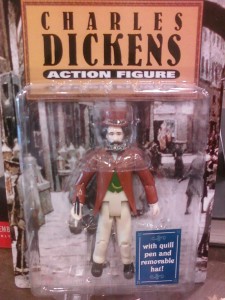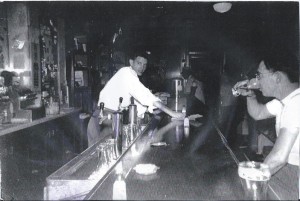I’ve been spending time with a favorite family, one that I’ve not visited in some time. The tribulations facing William Dorrit and his grown children make for some great drama, as co-presented by the BBC and WGBH-Boston in an adaptation of Little Dorrit, by Charles Dickens.
Somehow, I missed the whole miniseries when it aired in the US in 2010, but thanks to the hand-held viewing device (you know the thing to which I refer, which shall go un-named here…) I’ve been able to catch up on the episodes.
Much of the real-life of Mr. Dickens was woven into the fabric of his stories, and the patriarch of the Dorrit clan begins the story imprisoned for debt – just as Dickens’ own father had been jailed. A social reformer on many issues, Dickens points out the lack of logic in detaining debtors, who otherwise might have been able to work to pay off their creditors.
Although the work was published serially more than 150 years ago, his topics still reflect the times. One of the subplots involves a banker who is said to turn his clients investments to gold with unfailing returns – in the manner of present-day schemer Bernie Madoff. And – just as the financial scheme of Madoff’s house came crashing down, Mr. Merdle suffers financial and social ruin when his investment scheme eventually fails. The characters in Little Dorrit have their financial security destroyed due to the collapse of what had been considered a no-risk investment, as did the victims of Bernie Madoff.
Where Dickens created distinct characters to enliven his novels, the BBC production has followed faithfully. Andy Serkis plays the evil villain Mssr. Rigaud, who hisses about as much as the character Gollum in the Lord of the Rings movies, also played by Serkis. And Mr. Pancks, the snorting and nervous-twitching rent collector is done justice by British actor Eddie Marsan.
I realize though, that it isn’t the Dorrit family I’m especially fond of – it is the telling of their story by Charles Dickens that draws me in. During William Dorrit’s stint in prison he is alternately pompous and sniveling. When he is freed at long last, his newly-found fortune inspires conceit and condescension rather than inspiration for the greater good. His daughter Fanny was already snobbish before the family fortunes changed, and son Edward is idle and feckless regardless of his financial position.
Only Little Dorrit – Amy – who was born in the debtors’ prison, remains her kindhearted self throughout.
Perhaps if I had offered a Little Dorrit action figure instead of the one of Mr. Dickens (complete with removable pen and hat!), it might have sold during the holiday season. I’m a firm believer though, that Dickens is the gift that keeps on giving!

